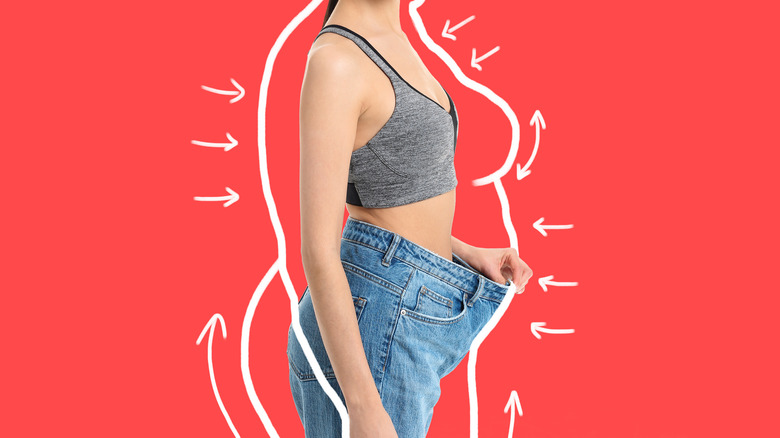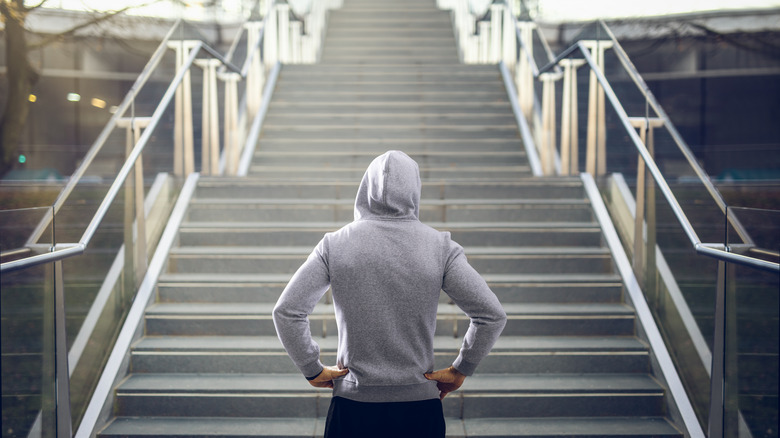Does Wearing Layers While Working Out Help You Lose Weight Faster?
Losing weight isn't easy. The right combination of effort, genetics, diet, and exercise can potentially lead to your desired results, per U.S. News & World Report. While there are many ways to improve your chances of achieving that goal, is what you wear one of them?
Everyone wants a quicker way to lose weight. Many supplements, workouts, diets, and theories are constantly touted as the next easy fix for fitness. While some of these may have some merit, others do not. Wearing layers while working out is one of these shortcuts commonly tossed around for weight loss specifically.
Dr. Brian Schulz, a sports medicine specialist, tells Livestrong that the temperature of your body increases when you exercise because as your muscles create energy, they also generate heat. To cool itself down, your body releases sweat as a liquid which then evaporates from your skin, taking the heat away with it (per WebMD). We usually wear layers to keep the body warm, so wearing layers during exercise will increase this process, heating the body more. Subsequently, to help manage our hot temperature, the body will sweat more to cool itself down. So wearing layers makes you sweat more, but does that help you lose weight faster?
Sweating drops water weight only
According to Healthline, sweating will cause you to lose water weight, but this drop will be replenished once you rehydrate. Therefore, shortly after your heavy-sweat workout, you should be lighter. This type of weight loss is used by those competing in combat sports who aim to make a certain weight before the event, per a 2011 study published by Strength and Conditioning Journal. Other traditional tactics used to achieve this that may have adverse effects include laxatives, diet pills, diuretics, and vomiting.
Healthline reports that the main risk of using layers and sweating is dehydration. According to the Cleveland Clinic, dehydration is when the body doesn't have a sufficient amount of water on board. Dehydration will make you feel thirsty and causes various other unfavorable symptoms like headache, confusion, tiredness, increased heart rate, and low blood pressure. These symptoms obviously aren't conducive to exercising, and not feeling well during exercise can lead to a mistake and injury.
In order to lose weight, you have to create a calorie deficit by using more calories than you eat (via Healthline). Losing water weight is only temporary and isn't a healthy way to lose weight. A better strategy is to focus on a healthy diet and expending calories through regular exercise. Medical News Today recommends tracking diet and exercise each day to help manage weight as well as getting a good night's sleep to promote the metabolism of calories to energy.


